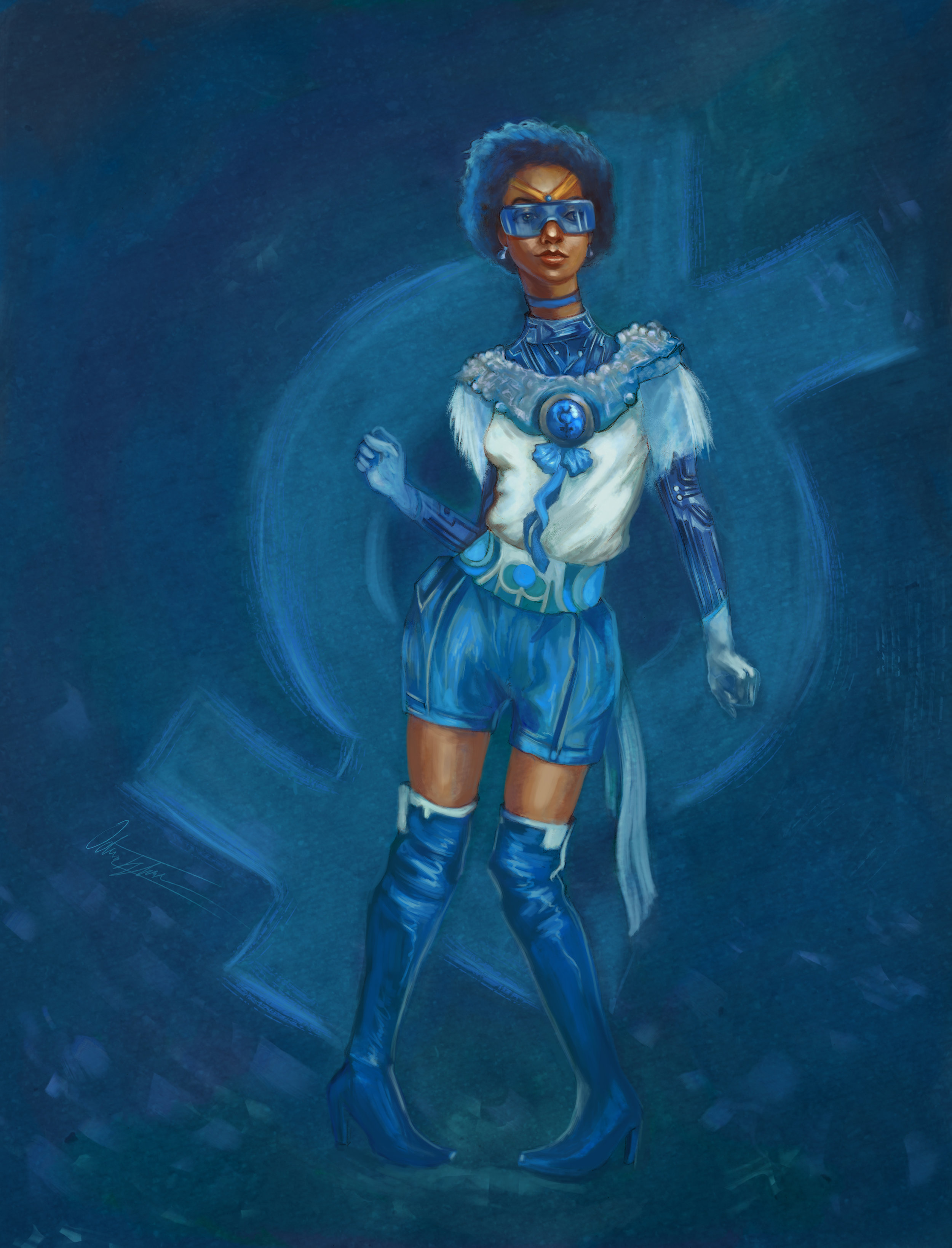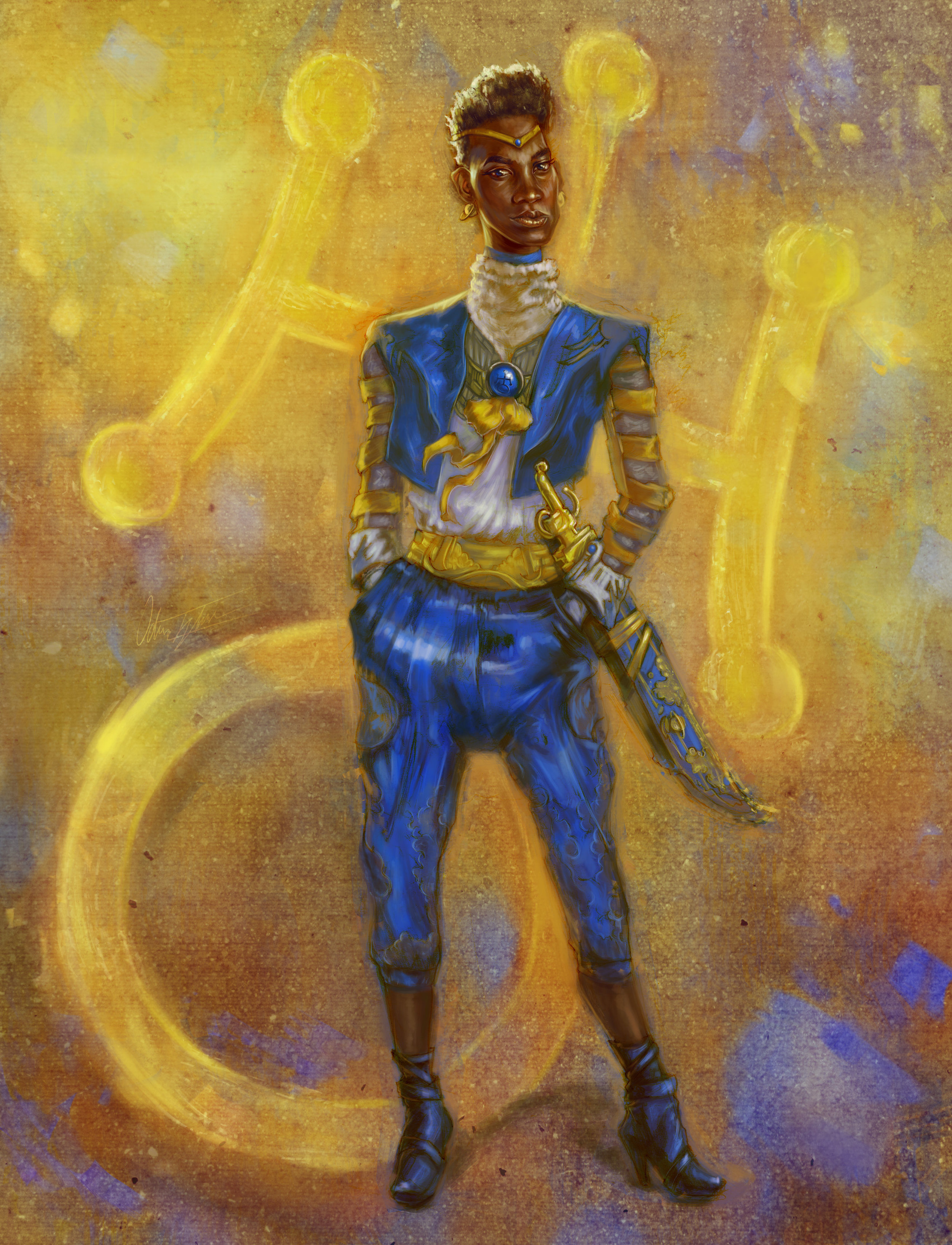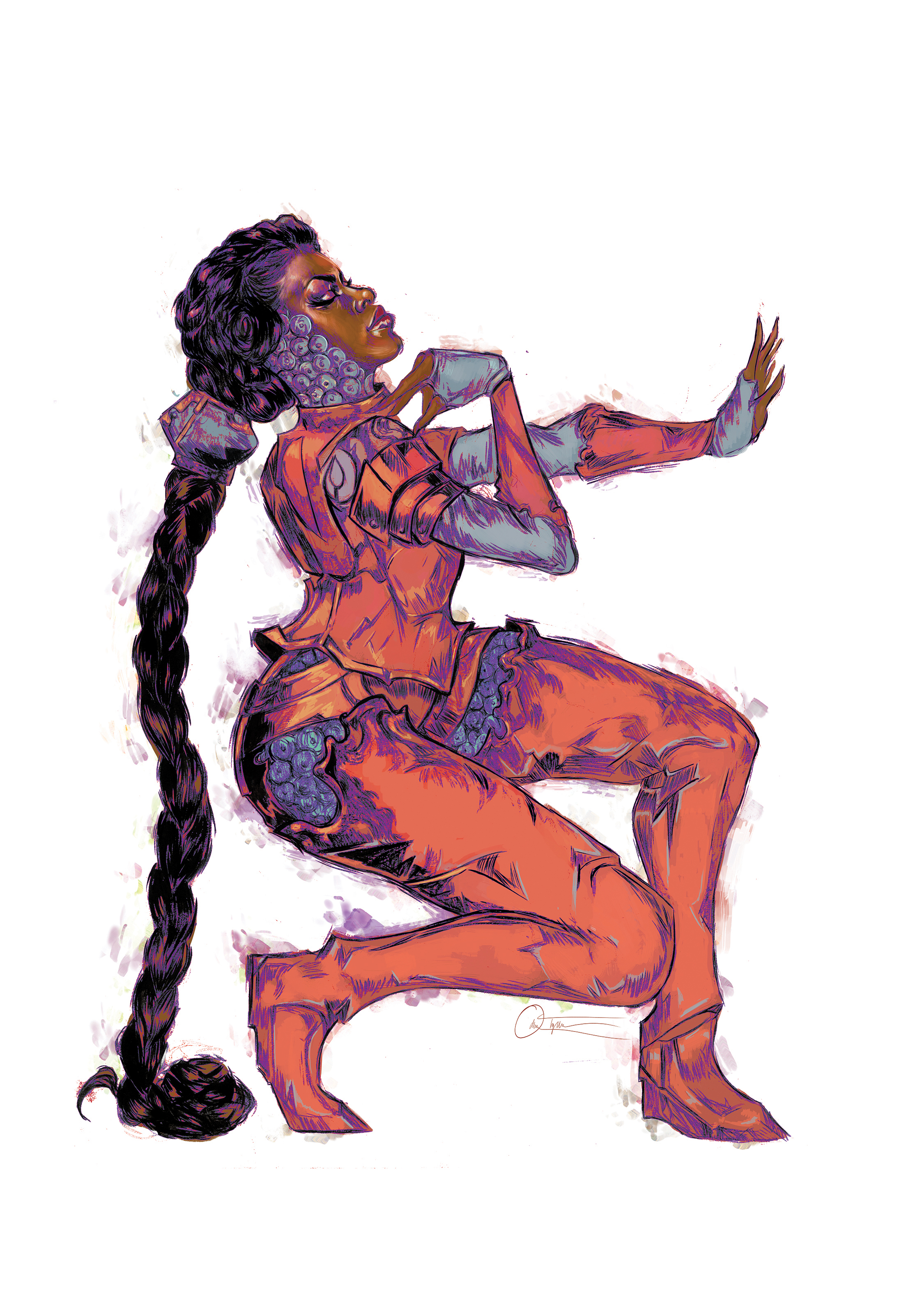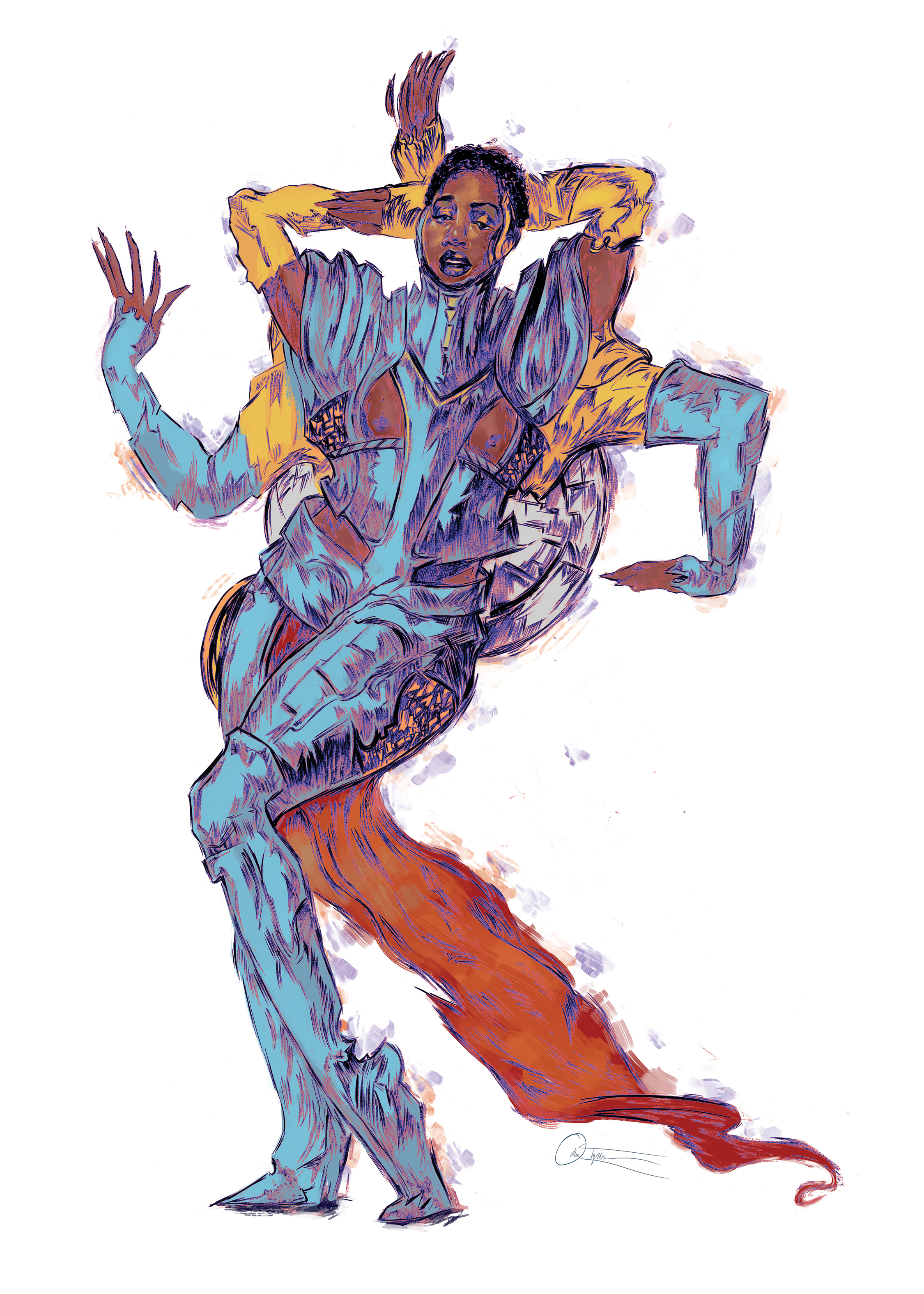Plantains & Pigments: Odera Igbokwe
/Tribunal, Odera igbokwe
The room is bright, if not actually sunny. Slipshod hardwood floors and crown mouldings appear regal in their decay. This shared Mount Pleasant studio hosts three visual artists. Odera Igbokwe sits in their section with dancer’s poise, amidst art supplies, paintings, and illustrations—portraits of demiurges materializing through abstract mists of colour.
Igbokwe (“ee-BOH-kway”) has been preparing for an upcoming group exhibition, Plantains and Pigments, which will open at Vancouver’s James Black Gallery in June 2019. A love of Sci Fi and Afrofuturism drive Igbokwe’s work, which asks questions about the future of Black people and of the African diaspora. What does it mean to move into the future as someone with Nigerian ancestry, no longer living in Nigeria? How does one reach back to the past, while moving forward? Honing in on these questions, Igbokwe’s practice explores what their ancestry (the past) and Afrofuturism (the future) might look like in the present.
Igbokwe has a unique ease in their capacity to imagine and create worlds. Their work not only features original deity characters, but also popular characters from Science Fiction, such as the Sailor Moon cast, re-envisioned as Black. Their work also honours Black American traditions, as seen in the series The Vogue Knights. Each work in this series depicts a different element of vogue—a highly stylized form of dance that originated in the 1980s Harlem ballroom scene, which gained widespread recognition through the 1990 documentary Paris is Burning. The series will be appearing at FlameCon in New York City later this year.
To Igbokwe, painting is prayer. It’s something you do every day, to keep your heart and soul healthy. Their works—many of which depict powerful, goddess-like figures—are grown from the seeds of their ancestry and sacred traditions, and how they’ve travelled through the diaspora.
“This deity over here is just like this one over here, even though colonization has happened...and it’s here and here and here,” they say, accenting each “here” with a wave of the hand. This small dance demarcates different spots in the air in front of them, showing how traditions have travelled across time and geography.
Plantains and Pigments, a show centring “reclamations of shared Nigerian heritage, finding the magic and fantasy within the African diaspora, and alchemizing the power of Afrofuturism,” will run in June 2019 at the James Black Gallery. The other two artists presenting work in the show—Akem and Edge—are also queer artists of Nigerian descent living in Vancouver area. All three illustrators share a style and draw from similar influences. Akem’s most recent series, Mythic Textures, showcases figures in semi-abstracted, colourful realms. In contrast to Igbokwe’s unyielding deities, these characters appear to search for something, eyes slightly askance, arms mid-reach for an unknown objective. Igbokwe had followed the third artist, Edge, on Instagram for a long time before realizing that they also lived in the Vancouver area.
“I saw their location one time and I was like ‘Wait What?! You’re here?! You’re here and Nigerian and queer? Let’s hang out!’” The show was originally a solo show for Igbokwe, but after meeting these other two artists, it quickly morphed into a group show. They struggled to name it, eventually landing on the same title as their Facebook group chat: Plantains & Pigments.
“That’s just who we are,” Igbokwe says. “We’re all Nigerian. Plantain is a staple food. It’s very nutritious, and it exists throughout the diaspora...Delicious. Rich. Colours."
“Pigments. We’re Black. We’re also painters and artists. Get it!?” They interrupt themself with a burst of laughter before sighing, “I’m so silly.”
Plantains and Pigments opens June 1 from 6-9 p.m. at The James Black Gallery (144 E. 6th Ave.).













